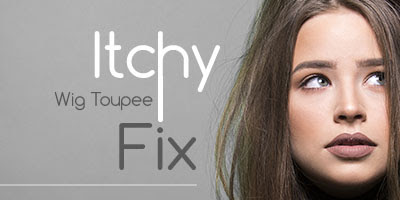7 reasons your wig or toupee is itchy and how to fix it
Posted by Santana Fell on Jan 04, 2024
Wigs and toupees are enjoyed by countless men and women worldwide for their transformative feature that makes switching up looks, covering thinning hair or bald heads, and adding volume and style to your natural hair a cakewalk.
The whole purpose of wearing a wig is to enhance one’s appearance and boost one's confidence. But this purpose is completely dampened when you wear an itchy wig, especially after you've perfected the attachment process and your wig looks fab. The unimpressive itching can draw unwarranted attention and be a source of irritation and embarrassment.
Sadly, itchy wigs are a typical nuance with alternative hair wearers. Whether it's a mild irritation or a persistent discomfort, it's essential to go to the root of the problem. Quite literally! You'd be surprised to know that sometimes your wigs for women and men’s toupees aren't the problem at all.
The general perception is that human hair wigs or toupees are naturally itchy because they are a foreign object applied to your scalp. This, of course, isn’t true. Read on to find out where the real issue stems from. Here are some common causes of itchy scalp under your wig or toupee, along with helpful tips to tackle and eliminate the pesky itch so that you can enjoy your wig thoroughly.
Sweat and Heat
Wearing a hairpiece, especially in tropical places or high-humidity areas, can trap heat and sweat against your scalp, increasing itching and discomfort. While it isn't always possible to remove your toupees every day, you can always use scalp protectors and scalp relief treatment sprays to help eliminate the itch and soothe your scalp.
Maintenance & Care
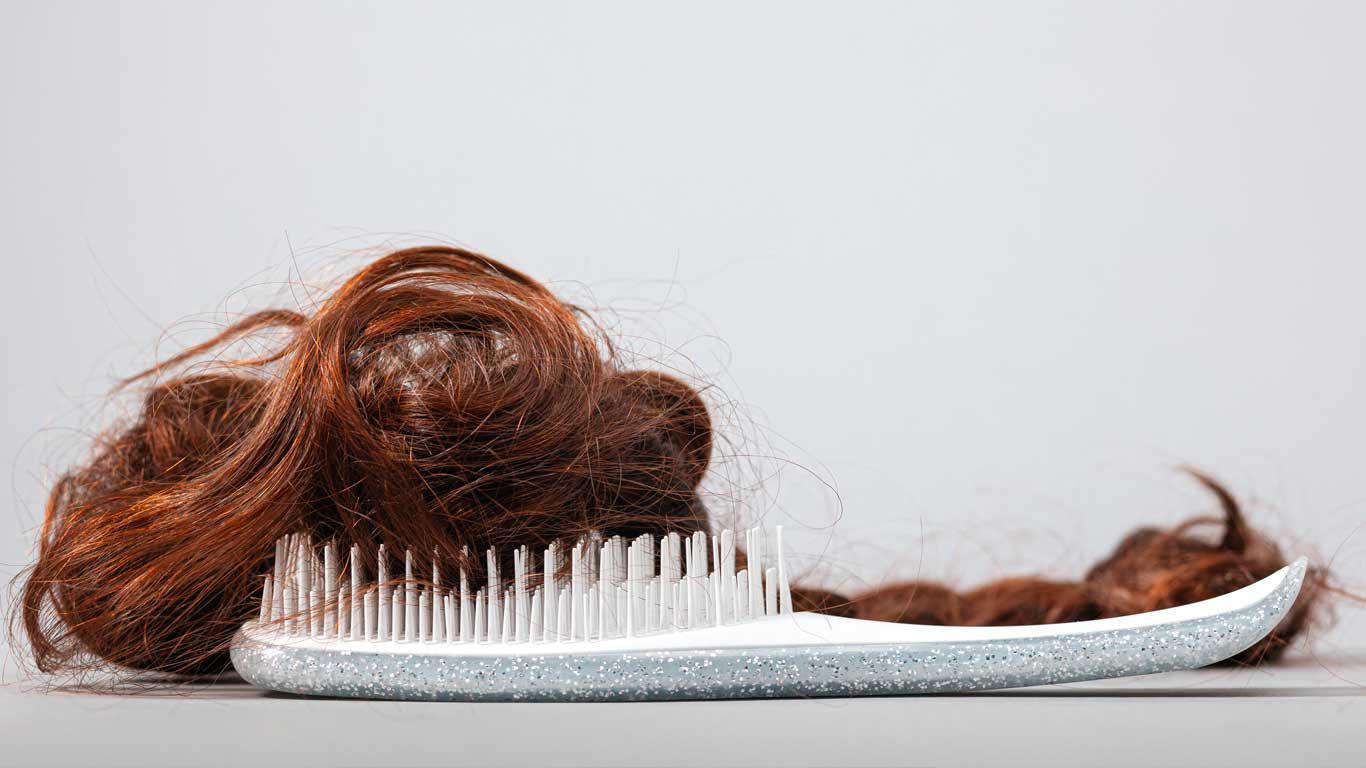
The care and maintenance of your hairpiece are crucial factors to keep in mind if you want to eliminate the itchiness when using these non-surgical hair replacement systems.
Wigs are easy to use and remove, so it's always advisable to take them off before you call it a night. When it comes to removing men’s toupees, it is not feasible to remove them every night. However, detaching them regularly provides a breather to your scalp, too.
Just as your natural hair gets itchy when dirty, accumulated dirt, sweat, or product buildup and residue on the hair replacement systems can lead to itching. Therefore, proper cleaning, washing, and before and after care for your hairpieces is crucial to alleviate their appearance and texture.
Use wig-friendly shampoos, conditioners, and leave-in conditioners to rejuvenate the wig and increase its lifespan. Ensure you are gentle with the wig while washing it thoroughly to remove all product residue to prevent itch. Proper drying and storage are equally vital to avoid mould or bacterial growth.
These small steps go a long way in keeping your wig refreshed and preventing itch on your scalp.
Dandruff
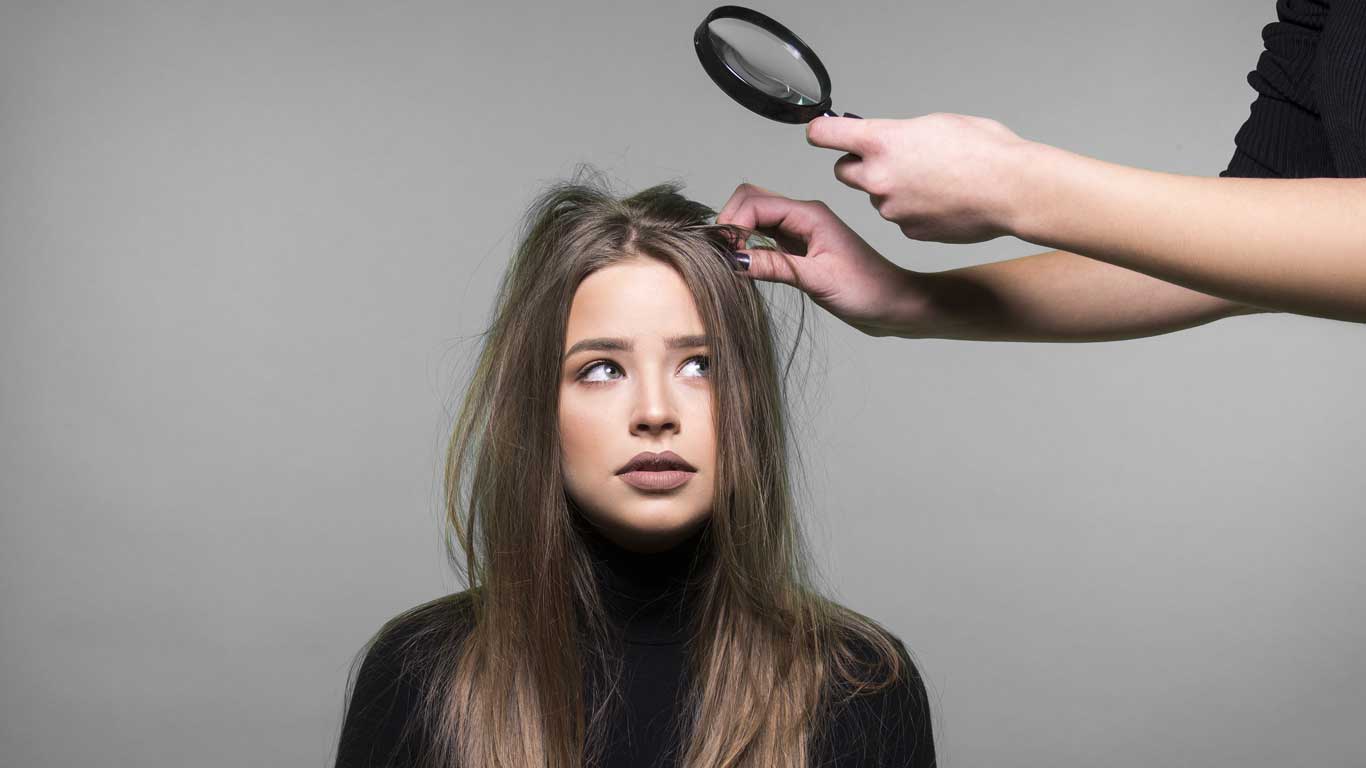
Pre-existing skin conditions like dry scalp and dandruff can contribute to an itchy scalp. Having severe dandruff and/or seborrhoeic dermatitis alone can cause profuse itching and a flaky scalp. Adding to that, a layer of non-surgical hair replacement system isn't the best idea because you can not scratch your scalp through the hair system, which can get very annoying, making you uncomfortable and irritated.
Wearing wigs for a long time without removing them may also cause your scalp to dry due to reduced airflow and moisture.
So what do you do? Treat your skin condition first. Use moisturizing medicated shampoos and conditioners to treat and eradicate dandruff or other similar skin issues that can make the scalp itch while maintaining hydration to avoid dryness.
Additionally, you can use a wig cap to help create a barrier between your scalp and the base of the wig or hairpiece, easing the itch to an extent. Keep in mind that by doing so, you might need to compromise on the breathability of your wig.
Remove your hairpiece at regular intervals to make your scalp breathe easily. When you remove the hair system, you could indulge in a 5-minute massage with essential nourishing oils to add moisture and increase circulation in your scalp.
Hair coloring
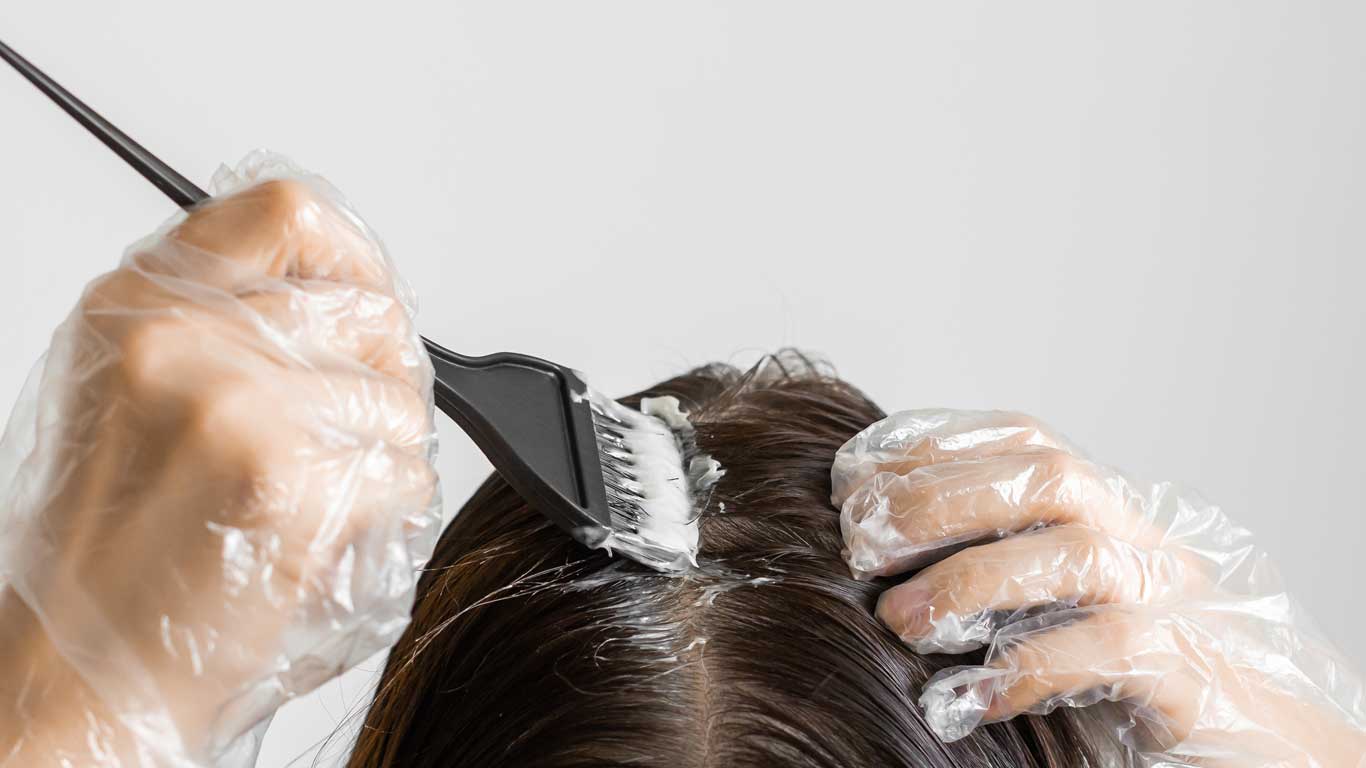
Many people like to color or bleach their natural hair and have it blend with the color of their hairpiece. However, this is also known to cause itchiness if you have sensitive skin. Adding a wig on top of this colored hair can mean even more discomfort.
One solution for this if you absolutely require your hair to be colored is to apply coconut oil and massage your scalp soon after you have finished coloring your hair. Leave the oil on your scalp for a few hours to help soothe your skin and help relieve any remaining itchiness.
Cheap hair systems

It’s basic human nature to want something at the cheapest possible price. Unfortunately, as far as wigs and toupees are concerned, this can lead to scams and faulty, low-quality hair systems. Whether it’s the base material, the hair used, or the knotting, all of these can explain why your hairpiece is itchy.
For the most part, hair systems are a long-term investment, so investing money into a wig or toupee from a reputable company like Superhairpieces that sells high-quality products is essential.
How to Avoid Getting Scammed by Wig or Hairpiece Retailers
Allergic Reactions to Adhesive or Wig Base
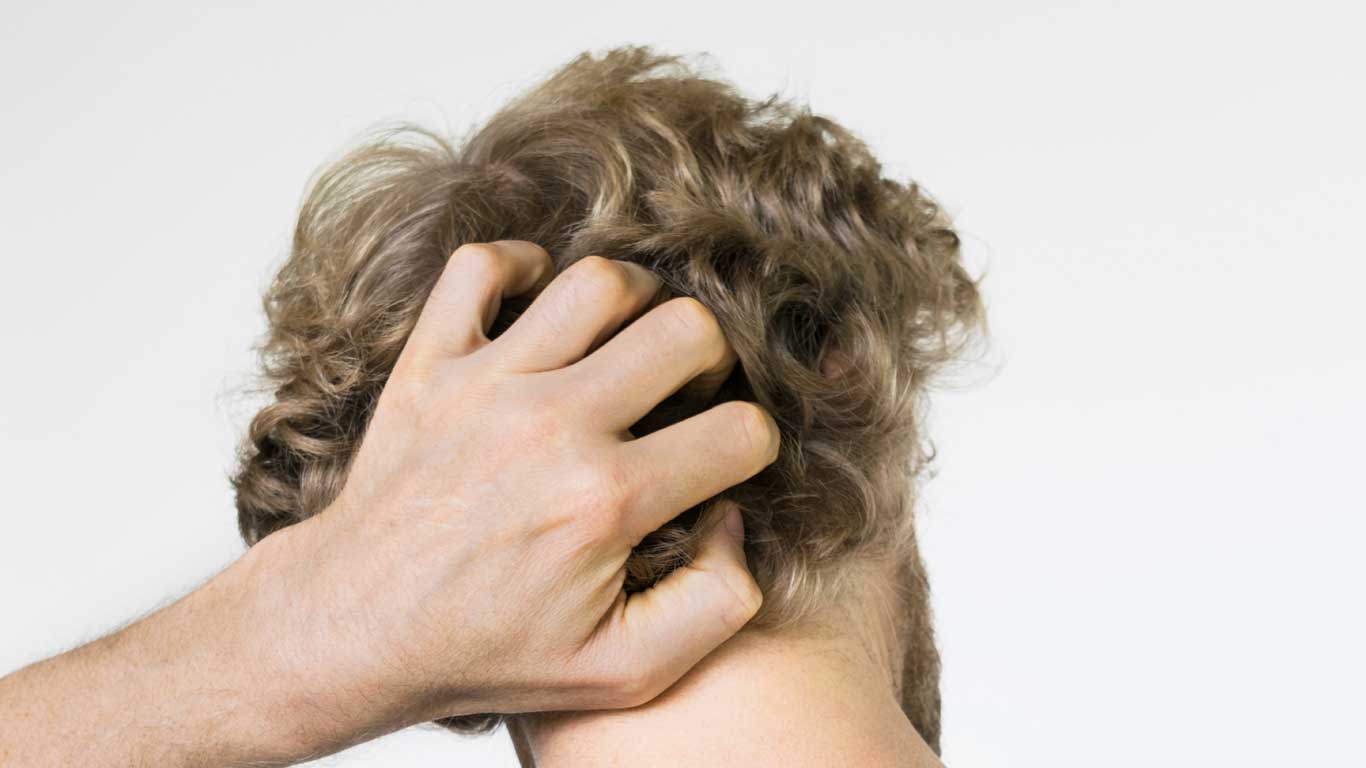
One of the most common reasons you may be experiencing itchiness under your wig is because your skin is simply allergic to your hairpiece or the adhesive used. This can be because of the type of hair, as sometimes, specific properties of synthetic hair are known to cause allergies for some wearers. If you find that you’re itching in the center of your head and have only used tape or glue at the perimeter, the base material may be causing you problems. Therefore, if you’re using a lace base, it may be worth seeing how you feel with a poly base and vice-versa.
If the tape or glue bothers you, switch to a different brand or type of hairpiece base with human hair to see what suits you best. To be even more sure, doing a patch test first is recommended.
The 7 best wig glues for your hair replacement system
Ill-fitting Wig
If your hairpiece or hair system is too tight or causing friction against your scalp, it can cause irritation, discomfort, headaches, and itchiness. Ensure your hairpiece fits appropriately and isn't too snug or loose. There should be some ventilation between your scalp and base to allow your scalp to breathe and make wearing a hairpiece a smooth experience and optimal comfort.
There are several reasons why your wig or toupee may be causing itchiness. The key lies in identifying the cause and alleviating the discomfort. Remember, every individual's hairpiece experience can vary. If the itch persists despite trying various solutions, consider consulting a dermatologist or a wig specialist for personalized advice.
-----------------------
If you are interested in learning more about wigs, toupees or hairpieces, contact one of our Superhairpieces consultants today at 1-866-814-7879 or email us at sales@superhairpieces.com to set up your virtual appointment.
Be sure to subscribe to our email list to ensure you get all the product information you need.
Don't forget tag us at @Superhairpieces and #Superhairpieces on your social media channels to get a shoutout!
 Likes
Likes



 USD
USD
